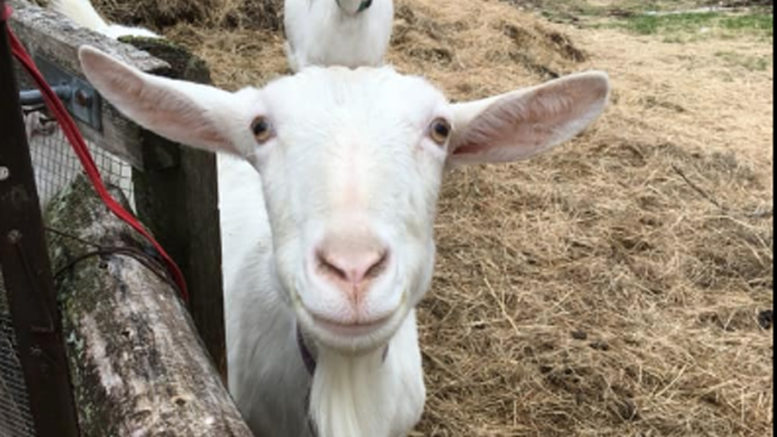Terry McNamee
For the Beaver
Children living in poverty in Haiti are being given a chance at a better future with some help from members of the Lennox and Addington 4H Goat Club.
In late May, as a thank-you to the community for its support, young Goat Club members from the local club gave away hot dogs at the Napanee No Frills, but they also accepted donations to be put towards the purchase of goats for those living in Haiti. The hot dogs were donated by No Frills and the Community Foundation for Lennox and Addington, with the barbecue provided by Battlefield Rentals, enabling the club to use all the money raised for a “Kids For Kids” program in Haiti which provides pregnant goats to children in Haiti.
“It’s a way of helping outside of their own community,” explained association president Lori Caughey.
“The Goat Club voted to do that, and wanted to help outside of Canada. They raised enough money to buy two goats.”
“We are currently looking at working with Reciprocal Ministries based in Florida as one of the programs we would work through,” said Goat Club organizer Keith Coleman. “The goats would be purchased in Haiti by the Reciprocal Ministries team.”
This particular program stipulates that the first female kid produced by the gift doe must be given back to RMI so it can be given to another family, thus spreading the benefits and the increased financial security and improved nutrition throughout the community. The doe and any other kids she produces belong to the family.
Caughey said that, with some goats producing twins or even triplets, the gift of a single pregnant goat can turn into three or four goats, and of course the doe can be bred again, producing more offspring. The doe’s milk can be used by the family or sold, and the kids she produces can be kept to increase the family’s herd, used for meat or sold to other people to generate income.
“We are not sure of the breeds of goat that would be purchased,” Coleman said. “The pictures appear to show Alpines and boer/kiko crosses.”
According to RMI, goats are a staple of the economy in Haiti, since they are more economical to raise than large animals, being hardy, easy to feed, able to survive arid conditions and, best of all, are so easily cared for that even young children can look after them safely. Goat meat is an important part of the diet in Haiti because it is affordable and readily available.
The families and the children are taught how to care for their goats while RMI provides vaccinations and health checks for the donated goats for the first year.
According to World Vision, raising and selling goats helps families pay for their children’s education, cover unexpected medical bills and even build homes, which are badly needed in a country which still hasn’t recovered from the earthquakes that destroyed so much of the country back in 2010.

